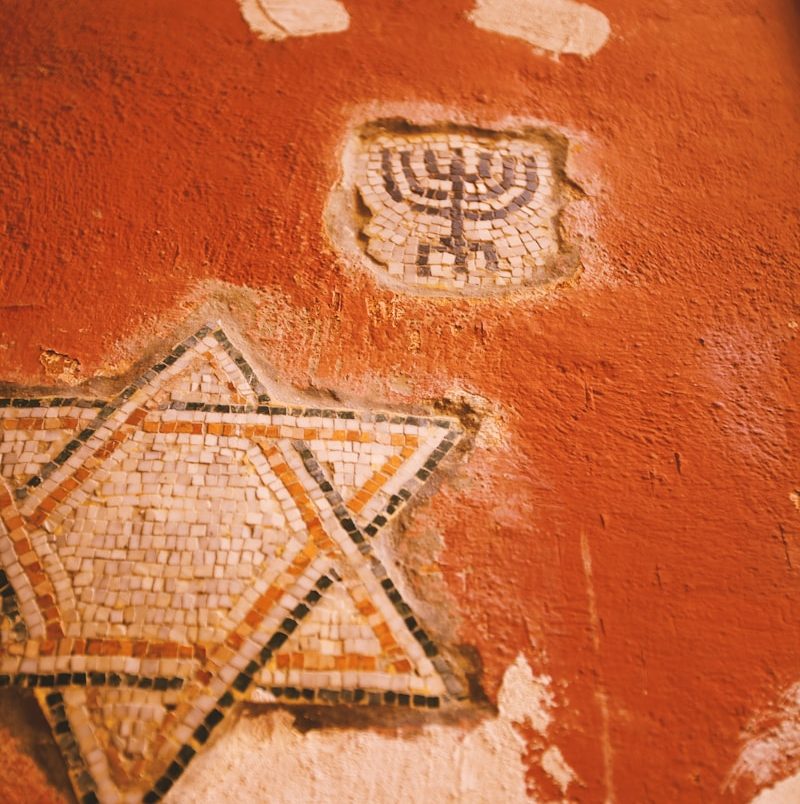Bet Tikkun is part of the World Jewish Adventist Friendship centre which sits under the Seventh-day Adventist Church. We are currently the only Adventist Jewish congregation in the South Pacific.
The Adventist Church is uniquely aligned with several Jewish beliefs and practices hence Bet Tikkun was established to be part of this church movement. Embracing both the Jewish aspect of life and faith as well as the Adventist theology of hope through the Messiah Yeshua. We are happy to expound more on this unique partnership should you be curious.
Bet Tikkun is led locally, by Jewish and Adventist leaders under the accountability of the Adventist church in New Zealand and the global Adventist Jewish Friendship center.
Want to know more about Bet Tikkun, ask a question, or have someone from our team get in contact? Fill out the form and someone will be in touch as soon as we can.

By Devora Kim
Amazon.com

By Jennifer Betham-Lang
Amazon.com

By Belinda McCallion
belindamccallion.com

Website
המרכז העולמי לידידות בין יהודים ואדוונטיסטים

Website
hebcal.com
timeanddate.com
1. I believe that God creates and guides all creatures, and that God alone made, makes and will make everything.
2. I believe that God is one and that there is no unity that is in any way like God’s. He alone is our God, Who is, Who was and Who always will be.
3. I believe that God is not physical and is not affected by physical phenomenon, and that there is no comparison to God whatsoever.
4. I believe that God is the very first and the very last.
5. I believe that to God alone is it proper to pray and it is not proper to pray to any other.
6. I believe that all the words of the prophets are true.
7. I believe that the prophecy of Moses was true, and that he was the chief of all prophets, both those before him and those after him.
8. I believe that the entire Torah now in our hands is the same one that was given to Moses our teacher.
9. I believe that the Torah will not be changed nor will there be another Torah from God.
10. I believe that God knows all the deeds of human beings and their thoughts.
11. I believe that God rewards with good those who observe his commandments, and punishes those who violate His commandments.
12. I believe in the coming of the Messiah and even though he may delay, nevertheless I anticipate every day that he will come.
13. I believe that there will be a resurrection of the dead whenever the wish emanates from God.
1. God is the Creator of all things and has revealed in Scripture the account of divine creative activity. God made “the heaven and the earth” and all living things upon the earth and rested on the seventh day of that first week. Thus, God established the Sabbath as a perpetual memorial of the completion of divine creative work.
2. There is one true God described in the Hebrew scriptures as Elohim of Abraham, Isaac & Jacob (Ex 3:6). El Shaddai our God Almighty (Gen 35:11), and YHWH our Lord and Creator of all things visible and invisible (Col 1:16).
3. God the Eternal is the Creator, Source, Sustainer, and Sovereign of all creation. The believer has no fear of spiritual foes or superstitions when faith is placed firmly with God.
4. God is omniscient, knowing everything; because God is the first and the last. God knows the end from the beginning.
5. We are called to grow. Therefore, we commune with God daily in prayer, feeding on the Word, singing praises, gathering together for worship, walking in His word and serving the community around us. We believe in Tikkun Olam, working with the divine to restore and heal the world around us.,The Gentile and Jew are grafted together in unity of such purpose.,We believe in the power of prayer and that the fervent prayers of the faithful can be powerful, availing much,(James 5:16).
6. Sent to be with God’s people always, the Ruach HaKodesh (Spirit of God) extends spiritual gifts to all people of God, empowers them to bear witness to Mashiach (Messiah), and in harmony with the Scriptures, leads them into all truth. One of the gifts of the Ruach Hakodesh is prophecy.
7. The holy scriptures are the written word of God, given by divine inspiration through scribes and prophets who spoke and wrote as they were moved by the Ruach HaKodesh (Holy Spirit of God). In this written word of scripture, God has committed to mankind the knowledge necessary for salvation.,No other written works are equal to the holy scripture in authority.
8. The Holy Scriptures are the revelation of God’s will. They are the standards of character, the tests of experience, and the authoritative revealers of doctrines and truths.,God is revealed through the law and scriptures. God authored the writings through inspired biblical writers. The law of God (Older Testament) is therefore perfect and not replaced or superceded by later writings or scripture. The Newer Testament (Yeshua and the Apostles) act to reinforce the validity of the Older Testament and law through midrash (explanation and parables). There is “one Torah” for all peoples.
9. The Torah, or word of God, is still binding today. The Sabbaths, feasts and festivals as prescribed therein are also still valid and contain many sacred and rich blessings for the observer. We have nothing to lose by observing these biblical holidays but have immeasurable blessing, joy and insight to gain through the symbolism and lessons of our Saviour hidden within each of these feasts, fasts or festivals described in Lev 23.
10. Because God is the Creator, God knows the thoughts and motives of every person whether sincere or not. Those whom God knows to be truly repentant, God grants forgiveness. Salvation is obtained by, and has always been obtained by, the grace of God according to the faith and obedience of the believers. Only the repentant will be inscribed in the Book of Life.
11. The unrighteous will be cleansed from the earth. The universe will thus be freed of sin forever. The redeemed are to spend eternity with God. God will bring every deed of humanity into judgment and “every secret thing, whether it is good or whether it is evil” (Ecc 12:14)
12. We believe in Yeshua the Mashiach (Jesus Christ) the Son of God (Lk 1:35), our Passover Lamb (Jn 1:29,36), the Word made flesh (Jn 1:1) who came to tabernacle (dwell) with us (Jn1:4) as God with us (Matt 1:23).,He came to restore the lost sheep of Israel (Matt 10:6, 15:24) and to establish the renewed covenant as spoken of by the prophet Jeremiah (31:31). Yeshua came to “fulfil” (as in “fill full” with meaning) and to perfect the law, not to diminish it or to make any part of the law null or void (Matt 5:17-19). Yeshua died on the tree and rose again on the third day according to the sign of Jonah (Matt 12:40). Yeshua came the first time as a suffering servant to fulfil the Spring festivals of Lev. 23 (Pesach/Passover, Matzot/Unleavened Bread, HaBikkurim/First Fruits & Shavuot/Weeks/Pentecost) and will come again, this time as conquering king, to fulfil the Autumn festivals (Rosh HaShanah/Trumpets, Yom Kippur/Atonement, Sukkot/Tabernacles, Atseret Shimini & Simchat Torah/Rejoicing in the law of God). This second coming of Yeshua Mashiach is our blessed hope, the grand climax of the “good news.”
13. When the Messiah, who is our life, appears, the resurrected righteous and the living righteous will be glorified and caught up to meet their Lord. This event is prophesied by the Feast of Trumpets–a foreshadowing of the Second Coming. This is to be followed by the righteous judgment and our atonement will then be complete by Yeshua as our heavenly High Priest (prophesied by the Day of Atonement).,After this, we will tabernacle (dwell) with him always as typified in the Feast of Tabernacles. This culminates with the Feast of the Eighth Day, an extension of the wedding feast of sorts as well as a celebration of the fulfilment of the Torah, a completion of the Word of God (the law and the Word in the flesh), and eternal rejoicing. We are not to grieve after our loved ones’ passing as do those who have no hope (I Thess 4:13).
Legalism or salvation by works (James 2:14-26)
Replacement theology (Rom 11)
Grace as a “substitute” for obedience to God’s law (John 14:15)
Gentile believers being substandard to Jewish believers (Galatians 3:28)
Jews ceasing Torah observance once accepting Yeshua as Mashiach
“Political Zionism” being the same as “Religious Jewishness“
The necessity of addressing God or Yeshua in Hebrew terms in order to be heard
That the wider Christian Church is pagan and therefore not in the plan of God
That the biblical sabbaths are “done away with” and therefore useless
Believers must observe “Christian” holidays such as Easter and Christmas
